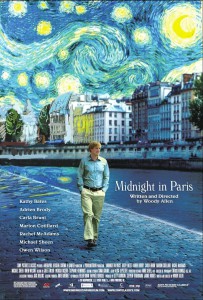 hen I walk through my hometown, what do I hear? Traffic noises, the sounds of nature, animals humming, barking, and chirping. And of course, I hear us. Us humans chattering, laughing, and arguing. It is languages I hear. Lately, there are also languages I have never heard before. Sometimes, I turn around in search of their source and try to understand what is being said. I fail most of the time, but every now and then I recognize a word because of its resemblance to a word I already know.
hen I walk through my hometown, what do I hear? Traffic noises, the sounds of nature, animals humming, barking, and chirping. And of course, I hear us. Us humans chattering, laughing, and arguing. It is languages I hear. Lately, there are also languages I have never heard before. Sometimes, I turn around in search of their source and try to understand what is being said. I fail most of the time, but every now and then I recognize a word because of its resemblance to a word I already know.
Damsels Causing Distress

Yes, you read correctly. I got the title right. You were probably expecting ‘Damsels in Distress’ so let’s look at that classic theme in literature first. You know the story, actually everyone does. The daring knight in shiny or rusted armor comes along and saves the damsel. She is in need of help, of rescue, of a man. Although she might be well accomplished in many aspects, she is unable to help herself out of trouble and needs someone else to do this for her. Usually, the knight or prince must save her from a villain or a fire-breathing dragon. Of course, in my version the knight would tame or befriend the dragon and not slay it. Well, I am getting ahead of myself. For now, let me say that representations of the ‘damsel-in-the-distress’ theme in popular literature and film has changed with each wave of feminism.
Before the first wave, many stories featured a damsel in distress, including most of the Disney princesses. Considering that they are based on folklore, this isn’t surprising. Let’s face it: the rights of women were reflected in their low status in society. The goal of the first wave was to create more opportunities for white middle and upper class women and secure the right to vote. The damsels were still in distress but they were on the right path to finally have a bit more of a say in things. Read more
Gone Girl
“What are you thinking? How are you feeling? Who are you? What have we done to each other? What will we do?”

Boy loses girl — what starts with a classic opening scene of a psychological thriller turns out to be much more than that. When his wife disappears on the morning of their fifth wedding anniversary, Nick Dunne’s small town life in Missouri is about to turn upside down. Not only do the police find a crime scene in the Dunne’s living room, they also have to deal with a husband who is neither surprised nor grieving. While the public’s interest in Amy grows by the day, Nick soon loses everyone’s sympathy. He smiles at all the wrong times; he lies and is far from being a good husband.
It seems like a classic case of convicting the husband: While he desperately tries to explain himself and fight the tightening noose around his neck, Amy’s diary only confirms the growing suspicion that Nick is a mean and misogynist bully: “I catch him looking at me with those watchful eyes, the eyes of an insect, pure calculation, and I think: This man might kill me.”
Could he have done it? Could he have killed Amy?
Celebrating African American History Month with Claytee White
Claytee White, Inaugural Director of the Oral History Research Center for the University of Nevada, Las Vegas Libraries, spontaneously granted us an interview about the collection of oral history in and near Las Vegas during our study trip to Las Vegas in 2014. White, one of five founders of the Las Vegas Black Society, Inc., collects the oral history of the black community in Las Vegas established in 1905. Somewhat nervous, our students were at first hesitant to ask questions, but Claytee White’s enthusiastic and warm personality made us feel at ease after a short while. Her vast knowledge about Las Vegas history and great enthusiasm for the “African American Experience in Las Vegas” collection was and is evident to all. See for yourself:
https://youtu.be/YpkYapbMvBU
If you’d like to hear some clips for yourself, why not search the collection?
The Oscars – Not in Color This Year
 There’s always suspense at the Oscars, but this year edge-of-the-seat tension will be greater than it has ever been. There is interest, of course, in who will win in each category, but the real question prominent in the minds of most in the theater and in front of the TV is, “What will Chris Rock say?”
There’s always suspense at the Oscars, but this year edge-of-the-seat tension will be greater than it has ever been. There is interest, of course, in who will win in each category, but the real question prominent in the minds of most in the theater and in front of the TV is, “What will Chris Rock say?”
This year’s host was announced well before the all-white nominations were, and in a plot worthy of the best of Hollywood’s script writers, the Academy chose maybe the most insightful commentator on matters of race and class in Hollywood, if not the United States.
No opening monologue has ever been so anxiously anticipated; arguably, no comedian’s monologue on an entertainment show has ever had the same potential for social impact. Of course, like any speech, everything hangs on what is said, and it seems everyone in Hollywood has an opinion on what this 50-year old stand-up comic-actor-producer should say.
Midnight in Paris: Somewhen, Somewhere, Someway
Gil Pender (Owen Wilson) is a successful Hollywood screenwriter, lives in Beverly Hills, and has a beautiful fiancée, Inez (Rachel McAdams). And yet, life feels a little unsatisfying to him because he wants to be a novelist and feels deep down that “we both like pita-bread” may not be the best basis for a marriage. While vacationing in Paris with his wife-to-be and her posh, conservative, and business-oriented parents, Gil realizes that he longs for someplace else and very literally sometime else: Paris in the 1920s! Palpably at odds with his present time and company, Gil seeks solitude one night in the streets of his beloved city. When the bells of Notre Dame strike midnight, an old-fashioned limousine suddenly appears out of nowhere, and a bunch of good-humored people invite him on a trip beyond his wildest imagination. Read more







